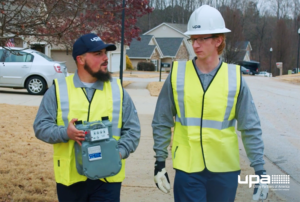Warren Buffett, one of the business world’s most successful investors, entrepreneurs, and philanthropists, has never been short on words when it comes to running a business. Among the many quotes attributed to Buffett, perhaps the most frequently recited relates to the reputation of a business. “It takes 20 years to build a reputation and five minutes to ruin it,” Buffett said. “If you think about that, you’ll do things differently.”
Buffett has long led Berkshire Hathaway, a holding company for many businesses across a spectrum of industries. Because of diversity, it should come as no surprise that the advice is applicable for nearly every business including utilities. Maintaining a sparkling reputation has proven to be a challenge for some utilities. We’re here today to talk about one shift in mindset that can pay big dividends toward improving your reputational standing.
Keep reading to find out why utilities should take customer complaints and recommendations seriously.
Statistics around customer service
By nature, utility companies are data-driven businesses. They try to be keenly aware of exactly how many customers they’re serving and the amount of product they are consuming each month. Since we know data is essential to the industry, we thought we would start with some statistics around customer service.
According to one source, 68% of customers who leave a company say they do so because they believe the business doesn’t care about them. While that may mean a little more to businesses in industries with competition, this next stat should be enough to make every business, including utilities to take notice.
That same source says that 13% of unhappy customers will voice their displeasure with 15 or more people. Only 1 in 25 unhappy customers will take the time to complain directly to the business. So, what do you do with ones that do get to you? Make the most of them and solve problems.
Related: “Ask for ID” and Other Ways Utilities Can Help Customers Avoid Fraudsters
Why taking customer complaints seriously is so important
There once was a time when “The customer is always right” was the mantra for most businesses. Yet, in recent years, that attitude has faded with some customer service reps failing to meet what can seem like unrealistic customer expectations.
In order to take customer complaints seriously, the first step is to ensure you’re receptive to hearing those concerns. While training your reps, stress the importance of being a compassionate and empathetic ear to customers. You should also encourage employees to go the extra mile to find solutions to problems and not just ways to appease customers so they can move on to the next call.
Related: Improve Call Center Operations With These Four Tips
Some utilities have even found success in engaging customers through surveys or forum groups to gather market research. This type of feedback can help collect customer complaints in a setting that feels safe and comfortable for the customer, especially when they know the utility company is asking for it.
Customers care
One thing to keep in mind is that a complaining customer is a customer who cares. It means that they had expectations of what their experience with your company would be, and you came up short. And it also means that they’re offering you a chance to make it right again.
13% of unhappy customers will voice their displeasure with 15 or more people. Only 1 in 25 unhappy customers will take the time to complain directly to the business.
In a piece for the Harvard Business Review, research indicated that customers who took to Twitter to complain to a business in the airline or wireless telecom industries remained loyal to the companies that provided good, prompt customer service. As a result of those efforts, customers were even willing to pay more than a competitor might charge for a comparable good or service. Additionally, receiving a response from the brand on Twitter improved net promoter scores, a stat that measures the likelihood of someone recommending the brand to others, dramatically across both industries.
The last piece of sound customer service that some companies fail to perform is closing the loop on a complaint. While this practice may not be possible for every single complaint logged, having a manager reach out to the customers with the most egregious solved problems is an added touch that resonates well with customers.
Related: Utility Customer Satisfaction Improves With Tech
Taking customer complaints seriously can significantly impact your company’s success and the way your customers feel about you. Utility Partners of America has more than 20 years of working with utilities and energy co-ops at fine-tuning practices like customer service to improve loyalty. Interested in learning what we can do for you? Contact us today.




